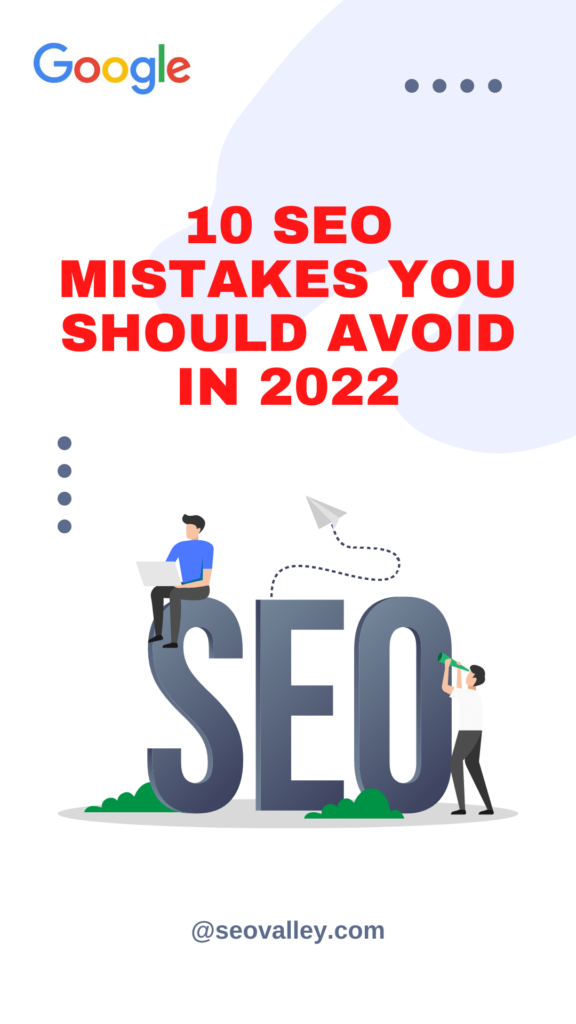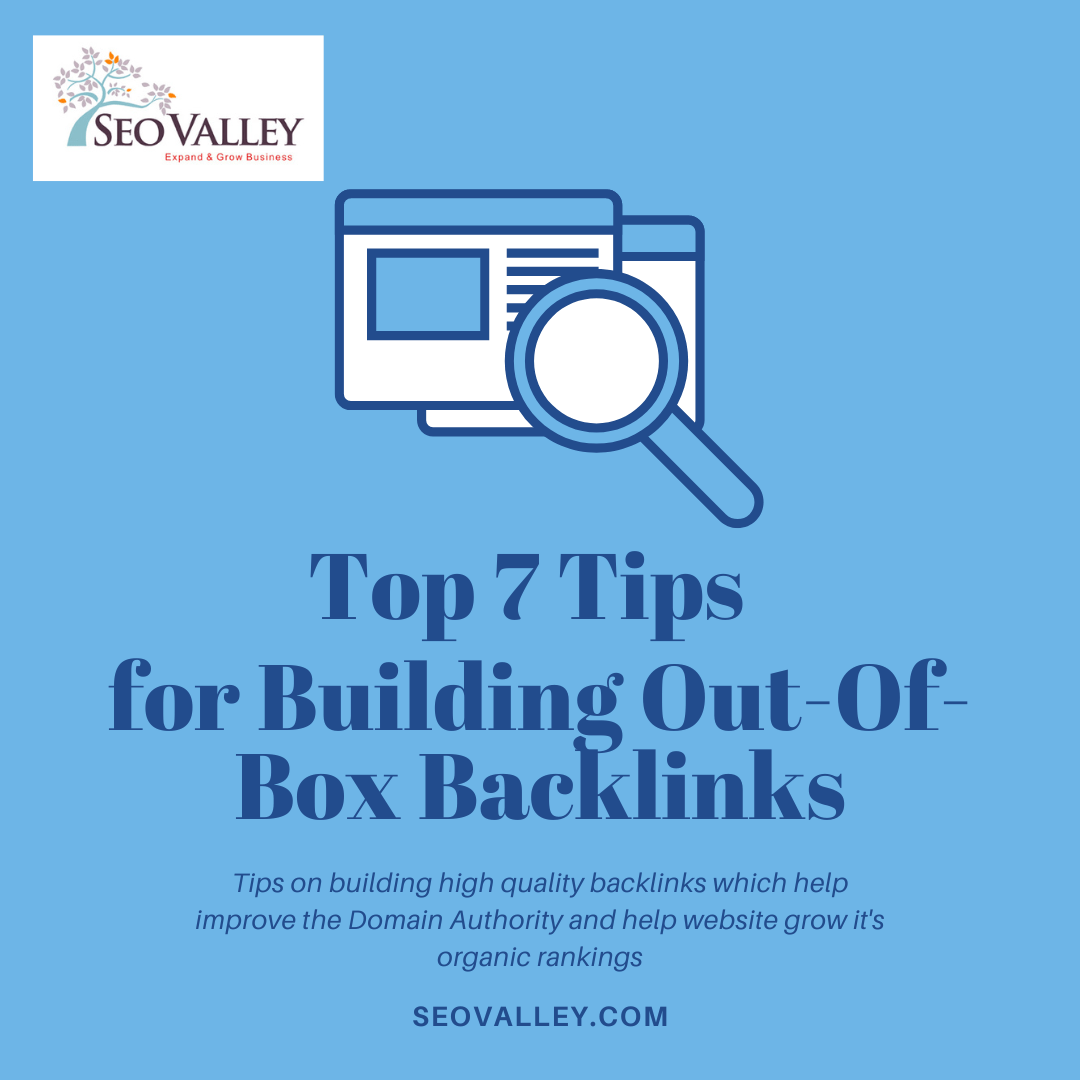When did you last update your search engine optimization (SEO) strategy? If it’s been more than two years, then it’s time to refresh your approach in 2022. Let’s talk about mistakes to avoid if you’re serious about ranking better.

Mistake #1: Overstuffing Content With Keywords
Keywords will continue to play an essential role in ranking, but overusing them will hurt your rankings in 2022.
Keyword density is the frequency (expressed as a percentage) at which your targeted keyword or phrase appears in your content. Google has never recommended an ‘ideal’ density, but most experts agree that it shouldn’t go past 2%.
So if you still tend to overstuff your content with words your blogs with words you hope to rank for, it’s time to stop. Write naturally instead and aim to provide the best reader experience.
Mistake #2: Not Catering To Search Intent
Understanding ‘search intent’ is the key to succeeding in 2022 and onwards. Get into the user’s mindset and figure out what their goal is. Do they intend to buy a product? Compare several products? Get more information about a topic? Once you understand their intention, you can provide them with real answers and solutions—and this will ultimately help you rank better.
Mistake #3: Failing To Update ‘Google Business’ Listing
Perhaps you already claimed your Google My Business listing last year. But are the details still correct? The information in your listing should actually match the details you have provided on your website. If things don’t tally, your rankings will suffer.
Mistake #4: Failing To Optimize For Long-Tail Keywords
It’s still important to optimize for specific keywords that bring in verifiably high search volumes. But don’t optimize for those words alone. You also need to optimize for related keywords and searches associated with a major keyword—including plurals, rephrased searches, modifiers, questions, synonyms, and highly-related search terms.
Mistake #5: Not Checking The Competition
One of the best ways to improve your rankings is to look at what competitors are doing right. Make a list of competing brands that rank better than you and go through their websites. Look at their content. Observe what SEO methods they use.
Mistake #6: Not Tracking Session Duration
Do visitors stay long enough to consume your content? Google uses more than 200 ranking factors, and ‘session duration’ is among the most important. It refers to how much time your visitors spend on your website before they return to the search engine results page. The longer they stay, the more credibility Google assigns to your website.
Mistake #7: Forgetting To Do Periodic Audits
A website audit lets you analyze your site’s overall performance from the perspective of users and search engines. Does it load fast enough? Is the navigation user-friendly? Are all links working as they should? Careful scrutiny will reveal problems and opportunities to upgrade your website.
Mistake #8: Buying Backlinks
These days, backlinks are earned—not purchased. Google has gotten very good at spotting spammy behavior and penalizing offenders.
Mistake #9: Focusing Too Much On Mobile
With over 50% of web traffic coming from smartphones and other mobile devices, it’s more important than ever to invest in mobile responsiveness and optimization. But this doesn’t mean ignoring desktop users.
After all, desktop devices continue to be the leader in many areas including jobs and education, computers and electronics, business and industry, science, social networks, and internet and telecom. Most conversions in these fields still happen on desktops. What’s more, desktop users tend to stay longer.
Mistake #10: Duplicate Content
Duplicate content pages is quite common problem with e-commerce websites selling similar products with exactly the same product descriptions. Luckily, it’s fixable. You can set up 301 redirects from the duplicate pages to the original pages. Another option is to employ the rel=canonical attribute or use the content=”noindex,follow” meta robots tag for the HTML head of each page you want to exclude from Google’s index. The best solution depends on your goals.
Do you need help freshening up your overall SEO strategy for 2022? Talk to SEOValley today.










